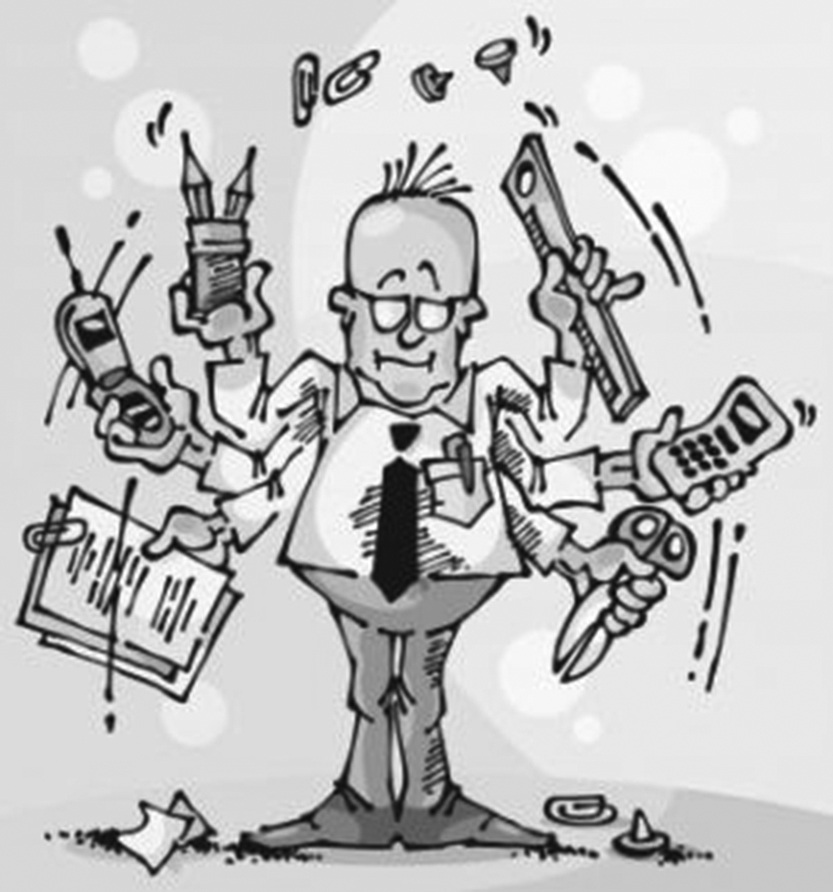There is almost nothing in life that I can possibly have a stronger aversion for than inefficiency. It is incredibly difficult for me at any point of the day to refrain from thinking about something I can do with my time. Let it be waiting for a friend or standing at the bus stop; I would always end up “saving time” by either doing my homework or reading a textbook off my smartphone.
I have only recently come to realize how hung up on efficiency I can be after tumbling off my bike and as a consequence have my leg set in a cast for two weeks. The accident forced me to become dependent on crutches and just this was enough to get the best of my patience. What used to be a five-minute walk to class now takes 20. What was once a quick morning shower turned into a slow and agonizing half hour. I had to relinquish all habits of studying between classes simply for the sake of getting to the next class on time or visiting the clinic. As I learnt that it was simply not possible to speed-walk with crutches, I started leaving them at home and invented a new walk, which involves alternating between hopscotching and limping. The discovery, to my immense satisfaction, saved me about 15 minutes per day in total.

As my foot is now almost back to normal, I cannot help but revisit this memory and contemplate on where all my attraction to efficiency came from. Sometimes I would like to think it is because of the high-paced and pressure-cooking college environment, where students are always overwhelmed by the workload and racing against a twenty-four-hour work cycle. But it is also possible that, my addiction to such a lifestyle pre-dates my entering college and stems from the fact that for my whole life I have been living in a society where productivity is highly overrated. For years our economy has been focused almost entirely on efficiency innovations, which aim towards reducing the time it takes to perform daily tasks. With more and more people having access to these innovative technology and services, a social arms race for efficiency has not only become possible but also inevitable. People, ironically, end up in a viscous cycle; while accomplishing more at a greater speed, which should supposedly mean gaining more leisure time, people tend to spend these resulting extra hours engaged in extra work to feel extra productive.
It is high time that many people, including myself, be reminded that efficiency is just a means to an end, not an end to itself. It is rather foolish to set a life goal of just living more efficiently. Was that not what we invented machines for in the first place? Are we saying our purpose in life is no better than that of an automaton? Efficiency grants us time to pay more attention to what we often neglect and to try out things our schedule is not normally able to afford. Efficiency was created to afford one time to spend on things that are meaningful, fulfilling and edifying. Thus, for that purpose and that purpose alone should it remain.
Everyday for the past week, I have been trying to pay my respect to this personal epiphany by allocating at least 30 minutes in complete silence, unplugged from all sources of efficiency-stimulating devices. I would like to say that this gradual approach has rid me of all obsessions for productivity, but that would be a lie; I still remain guilty of hyper-efficiency for most part of the day. Nevertheless, I feel thankful to the accident for giving me a chance to slow down and reevaluate things I have always taken for granted. Who would have thought that relaxing could turn out to be such a hard skill to acquire?

